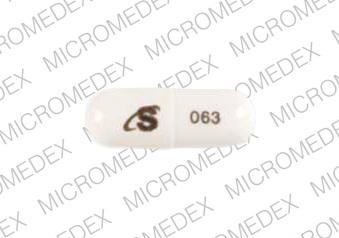Agrylin
Generic name: anagrelide [ an-AH-gre-lide ]
Drug class: Miscellaneous coagulation modifiers
What is Agrylin?
Agrylin is used to treat a blood cell disorder called thrombocythemia (also called thrombocytosis), which occurs when your body produces too many platelet cells.
Agrylin may also be used for purposes not listed in this medication guide.
Agrylin side effects
Get emergency medical help if you have signs of an allergic reaction: hives; difficult breathing; swelling of your face, lips, tongue, or throat.
Agrylin may cause serious side effects. Call your doctor at once if you have:
-
easy bruising or bleeding (nosebleeds, bleeding gums);
-
signs of stomach bleeding--bloody or tarry stools, coughing up blood or vomit that looks like coffee grounds;
-
chest pain or pressure;
-
fast or pounding heartbeats, fluttering in your chest, and sudden dizziness (like you might pass out);
-
swelling in your lower legs; or
-
blue colored lips or skin.
Common side effects of Agrylin may include:
-
fast heartbeats, chest pain, breathing problems;
-
numbness, tingling, burning pain;
-
headache, weakness, dizziness;
-
stomach pain, gas, indigestion, loss of appetite;
-
nausea, vomiting, diarrhea;
-
swelling in your hands or feet;
-
fever, cough, not feeling well;
-
back pain; or
-
rash, itching.
This is not a complete list of side effects and others may occur. Call your doctor for medical advice about side effects. You may report side effects to FDA at 1-800-FDA-1088.
Related/similar drugs
Warnings
Follow all directions on your medicine label and package. Tell each of your healthcare providers about all your medical conditions, allergies, and all medicines you use.
Before taking this medicine
Tell your doctor if you have ever had:
-
bleeding problems;
-
long QT syndrome (in you or a family member);
-
heart or lung problems;
-
liver disease; or
-
an electrolyte imbalance (such as low levels of potassium in your blood).
It is not known whether Agrylin will harm an unborn baby. Tell your doctor if you are pregnant or plan to become pregnant.
This medicine may affect fertility (your ability to have children).
You should not breastfeed while using Agrylin.
Agrylin is not approved for use by anyone younger than 7 years old.
How should I take Agrylin?
Your heart function may need to be checked using an electrocardiograph or ECG (sometimes called an EKG) before and during treatment. You may also need frequent blood tests while taking Agrylin.
Follow all directions on your prescription label and read all medication guides or instruction sheets. Your doctor may occasionally change your dose. Use the medicine exactly as directed.
If you need surgery, tell the surgeon ahead of time that you are using Agrylin.
Store at room temperature away from moisture, heat, and light.
What happens if I miss a dose?
Take the medicine as soon as you can, but skip the missed dose if it is almost time for your next dose. Do not take two doses at one time.
What happens if I overdose?
Seek emergency medical attention or call the Poison Help line at 1-800-222-1222.
What should I avoid while taking Agrylin?
Do not take aspirin unless your doctor has told you to. Follow your doctor's instructions about how much aspirin to take, and how often to take it.
Ask a doctor or pharmacist before using any medicines for pain, fever, swelling, or cold/flu symptoms. They may contain aspirin or similar ingredients (such as ibuprofen, ketoprofen, or naproxen) which can increase your risk of bleeding.
What other drugs will affect Agrylin?
Agrylin can cause a serious heart problem. Your risk may be higher if you also use certain other medicines for infections, asthma, heart problems, high blood pressure, depression, mental illness, cancer, malaria, or HIV.
Tell your doctor about all your other medicines, especially:
-
an antidepressant;
-
medicine to improve blood flow;
-
a blood thinner (such as warfarin or Coumadin) or other medicine to treat or prevent blood clots;
-
NSAIDs (nonsteroidal anti-inflammatory drugs)--aspirin, ibuprofen (Advil, Motrin), naproxen (Aleve), celecoxib, diclofenac, indomethacin, meloxicam, and others.
This list is not complete. Other drugs may affect Agrylin, including prescription and over-the-counter medicines, vitamins, and herbal products. Not all possible drug interactions are listed here.
More about Agrylin (anagrelide)
- Check interactions
- Compare alternatives
- Pricing & coupons
- Drug images
- Latest FDA alerts (3)
- Side effects
- Dosage information
- During pregnancy
- Generic availability
- Drug class: miscellaneous coagulation modifiers
- Breastfeeding
- En español
Patient resources
Professional resources
Related treatment guides
Further information
Remember, keep this and all other medicines out of the reach of children, never share your medicines with others, and use this medication only for the indication prescribed.
Always consult your healthcare provider to ensure the information displayed on this page applies to your personal circumstances.
Copyright 1996-2025 Cerner Multum, Inc. Version: 7.01.

